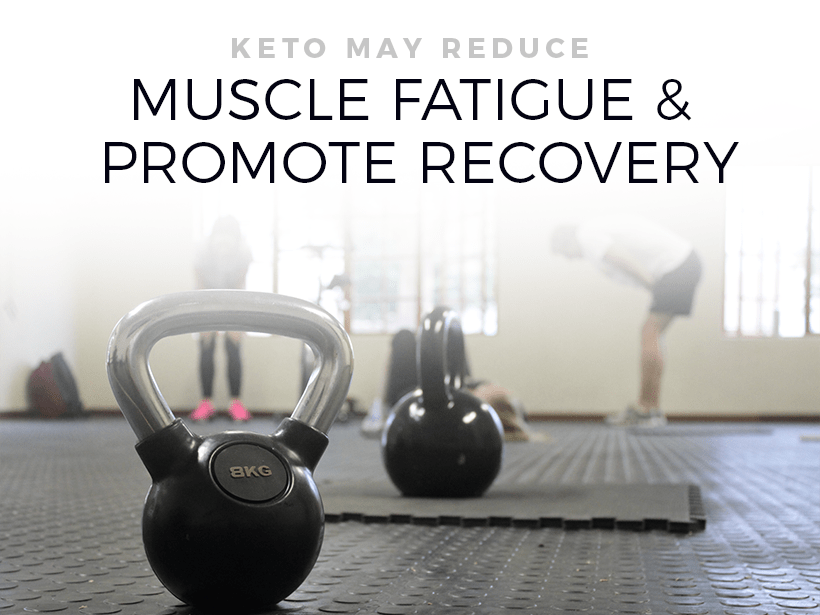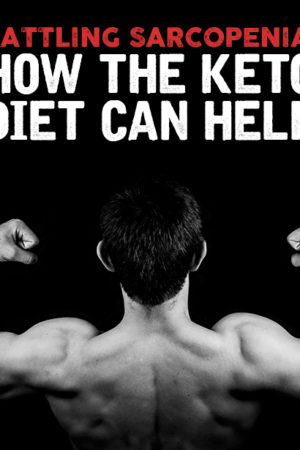The tried-and-true diet among marathoners and other endurance athletes used to be carbohydrate-heavy. However, science suggests that the keto diet could be a better alternative for building and repairing muscles.
Cut Carbs, Increase Athletic Performance
One study, published in The Journal of Physiology, explored the effects of the ketogenic diet in endurance athletes. Individuals got the bulk of their calories (60-70 percent) from fat and 20-30 percent from protein. The remaining percentage was made up of carbs. The keto athletes had more stamina and less muscle fatigue than their carb-laden counterparts. Since the keto group ate more fats, their bodies used that fat as fuel, which is a longer-lasting source of energy that doesn't involve nearly as many peaks and valleys as carbohydrates. On the other hand, the athletes who feasted on carbs used sugar as energy and ran out of it more quickly.
Keto’s Effects on Muscle Repair and Growth
Scientists have found that keto dieters have increased amounts of the amino acid leucine, which slows down muscle damage. Furthermore, the keto diet helped them increase muscle mass. While on a ketogenic diet, the body takes energy from stored fat, reducing fat and body mass, but keeping muscle mass intact. A six-week study out of the University of Connecticut backs this up. The researchers concluded that the keto diet not only preserved muscle mass, but also helped it grow.
Moreover, going keto reduces muscle inflammation and even improves focus, as athletes aren’t guzzling sugary sports drinks. The lack of sugar and carbohydrates allows the body to dip into stored fat for an energy boost instead. So, if athletes want to take full advantage of using fat as fuel and increasing their endurance, they should try switching to a ketogenic diet.
Non-Athletes Benefit, Too
The positive effects of the ketogenic diet aren’t reserved for athletes. A ketogenic diet can be beneficial to non-athletes as well. A reduction in carb consumption can rev up mental clarity, ease muscle pain and weakness, and speed up recovery time after physical exertion.1 One thing to be aware of is that the ketogenic diet must include ample amounts of protein for muscle proteins to grow. Stick to your macros, and you should be good to go.
Interestingly, a high-fat, low-carb diet was common before the development of agriculture.2 Hunter-gatherers maintained their caloric needs with fat and protein from meat, fish, nuts, and seeds. Today, there are even more nutrient-dense foods available to the average consumer. Keto dieters should see fat loss while maintaining muscle mass as long as they meet their basic calorie needs.
NUTRITIONAL DISCLAIMER
The content on this website should not be taken as medical advice and you should ALWAYS consult with your doctor before starting any diet or exercise program. We provide nutritional data for our recipes as a courtesy to our readers. We use Total Keto Diet app software to calculate the nutrition and we remove fiber and sugar alcohols, like erythritol, from the total carbohydrate count to get to the net carb count, as they do not affect your blood glucose levels. You should independently calculate nutritional information on your own and not rely on our data. The website or content herein is not intended to cure, prevent, diagnose or treat any disease. This website shall not be liable for adverse reactions or any other outcome resulting from the use of recipes or recommendations on the Website or actions you take as a result. Any action you take is strictly at your own risk.
- One in Three Millennials Wants to Try Keto - March 27, 2019
- 5 Common Keto Mistakes to Avoid - March 15, 2019
- High Insulin Levels are Toxic to the Placenta and Can Cause Miscarriages - March 7, 2019































